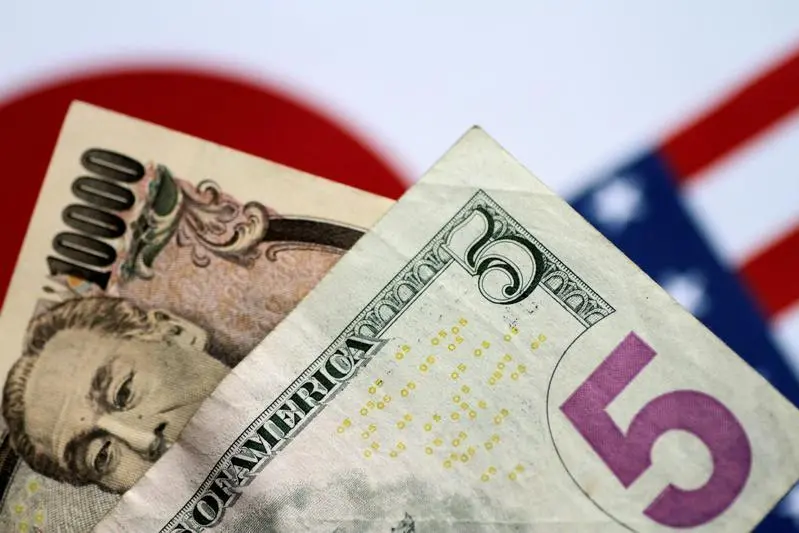PHOTO
TOKYO - Doubts over whether the United States and China will be able to reach a preliminary trade deal helped to lift safe-haven currencies such as the yen and the Swiss franc on Thursday, while pulling the yuan lower.
Adding to pressure, Chinese retail sales, industrial output and investment data were weaker than expected, sending the Australian dollar, already knocked by soft local employment data, to a one-month low.
U.S.-China trade negotiations have 'hit a snag' over farm purchases, with Beijing not wanting a deal that looks one-sided in favour of the United States, the Wall Street Journal reported on Wednesday, citing people familiar with the matter.
The report came after President Donald Trump said a trade deal with China was "close," but offered no details and warned that he would raise tariffs "substantially" on Chinese goods if there was no deal.
An agreement last month between the two economic powers to sign a "phase one" pact to end their trade war boosted optimism in global financial markets, lifting the yuan and other risk-sensitive currencies.
"If Trump takes a hard line, emboldened by the latest strength in stock markets, and refuses to make some concessions to China, there will be risk an agreement cannot be reached at the last minute," said Makoto Noji, chief currency and foreign bond strategist at SMBC Nikko Securities.
A new Reuters poll showed most economists do not expect Washington and Beijing to reach a permanent trade truce over the coming year.
The yen firmed to 108.77 yen per dollar, having risen to as high as 108.66 in previous U.S. trade.
The Japanese currency, often used as a safe-haven asset because of Japan's status as the world's largest net creditor nation, has hit a five-month low of 109.49 a week ago.
Against the euro, the yen was firm at 119.60 per euro, near one-month high touched the previous day.
The yen hardly budged after Japan's GDP data showed the economy grew an annualised 0.2% in July-September, much below economists' forecast of 0.8%.
The Swiss franc has been firm, having risen almost 0.6% over the last two days against the euro, to hit its highest level in more than a month.
The franc traded at 1.0895 per euro, near Wednesday's peak of 1.0879. Against the dollar, the franc stood at 0.9898 per dollar.
The unexpectedly downbeat China data highlighted continued pressure on the world's second-largest economy and subsequent risks to global growth.
The yuan took the data in its stride, though, staying little changed at 7.0223 yuan per dollar in onshore trade. But it stood off its three-month high of 6.9650 touched on Friday.
The Australian dollar was down more than a half percentage point to a one-month low of $0.6798 after the data.
It was pummelled earlier by weak domestic employment data showing the first fall in payrolls in three years.
The euro stood little changed at $1.10075, having touched one-month low of $1.0995 in U.S. trade while the dollar index stood not far from one-month high touched in the previous session.
The index last stood at 98.38.
U.S. consumer prices jumped by the most in seven months in October, which together with abating fears of a recession, support the Federal Reserve's signal for no further interest rate cuts in the near term.
Federal Reserve Chair Jerome Powell on Wednesday told Congress that the negative interest rates sought by Trump aren't appropriate for a U.S. economy with ongoing growth, a strong labour market and steady inflation.
Sterling was little moved at $1.2857, stuck in a tight range this week, in a limbo ahead of a Dec. 12 election.
A poll carried out for the Daily Telegraph newspaper showed British Prime Minister Boris Johnson's Conservatives have a healthy 10-point lead over main opposition Labour.
One-month implied volatilities of sterling options jumped to 11.4/12.1% from 7.25/7.95% on Wednesday as the instruments start to cover a period after the election.
Still, that is below this year's high above 14% marked in late October.
(Reporting by Hideyuki Sano Editing by Shri Navaratnam & Kim Coghill) ((hideyuki.sano@thomsonreuters.com; +81 3 4563 2768;))





















